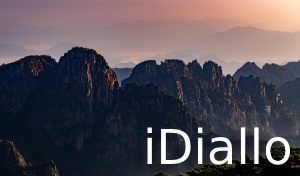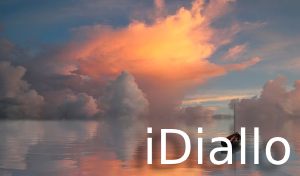Whenever a major platform announces changes, the internet's response is predictable: "Let's just build our own." I remember the uproar when Facebook introduced Timeline. Users threatened boycotts and vowed to create alternatives. The same pattern emerged with Stack Overflow. There were countless weekend-clone attempts that promised to be "better." Back then, building an alternative felt possible, even if most attempts fizzled out.
Now, with TikTok's American operations being sold to Oracle and inevitable changes on the horizon, I find myself asking one question. Is it actually possible to build a TikTok alternative today?
The answer depends entirely on who's asking. A well-resourced tech company? Absolutely. We've already seen Facebook, YouTube, and others roll out their own short-form video features in months. But a scrappy startup or weekend project? That's a different story entirely.
As someone who doesn't even use TikTok, I'm exploring this purely for the technical and strategic challenge. So let's approach this like a mid-level manager tasked with researching what it would actually take. It's interesting to think about cost or technology stack, but I think the most critical part of TikTok isn't its code at all.
The Simple Surface
On the surface, TikTok does two things: it lets you record a video, then shares it with other users. That's it. You could argue that Facebook, YouTube, and Instagram do the same thing. And you'd be right. This surface-level replication is exactly why every major platform (Reels, Shorts, etc.) launched their own versions within months of TikTok's explosion.
Creating a platform that records and shares videos is straightforward for a large company. The technical pattern is well-established. But that surface simplicity is deceiving. Because video, at scale, is one of the hardest technical problems in consumer tech.
The Technical Reality Check
Let me put video complexity in perspective. All the text content on my blog compiled over 12 years totals about 10 MB. That's the size of a single photo from my smartphone. A single TikTok video, depending on length and resolution, easily exceeds that.
Now multiply that by millions of uploads per day.
Building an app with TikTok's core features requires significant upfront investment:
- Development costs: Vibe coding won't cut it. You need to hire people.
- Team requirements: You'll need experienced teams that can build and optimize for each App ecosystem. Frontend and backend developers, UI/UX designers, QA engineers
- Mandatory features: Video recording/editing with effects and filters, AI-powered recommendation engine, live streaming, duets/stitches, social graph and sharing, content moderation systems
These aren't optional. The format is established, the bar is set. You can't launch a "minimum viable" short-form video app in 2025. Users expect the full feature set from day one.
Video processing is not as simple as it seems. You could build wrappers around FFmpeg, but building fast and reliable encoding, streaming and formatting demands more than just a wrapper.
In my previous exploration of building a YouTube alternative, I concluded it was essentially impossible for two reasons:
- It's expensive to host videos at scale
- It's even more expensive to deal with copyright issues
TikTok operates at a smaller scale than YouTube, but those fundamental challenges remain. You need serious capital to even start.
The Real Moat Isn't Technical
You can build the platform, but you can't build the phenomenon. TikTok's true competitive advantage has nothing to do with its codebase. It's technically a Snapchat clone. What makes TikTok impossible to displace is its cultural gravity.
TikTok isn't just a video app. It's the most powerful music discovery platform. It turned Lil Nas X's "Old Town Road" into a global phenomenon and resurrected Fleetwood Mac's "Dreams" 43 years after release. Artists now strategically release "sped-up" versions specifically formatted for TikTok trends. Record labels monitor the platform more closely than radio.
Your alternative app might have better video processing, but it won't make hits.
For younger users, TikTok has replaced Google for everything from recipe searches to news discovery. But it's more radical than that. Google evolved from a search engine to an answer engine, attempting to provide direct answers rather than just links. TikTok takes this evolution further by becoming a serve engine. You don't find content, content finds you.
You open the app and scroll. No search queries, no browsing, no active seeking. The algorithm serves you exactly what it thinks you want to see, refining its understanding with every swipe. Users aren't searching for vibes and aesthetics; they're being served in an endless, personalized stream. Your alternative can't replicate this with a better algorithm alone. You need millions of users generating behavioral data to train on.
On TikTok. "Microtrends" emerge, peak, and die within weeks, fueling entire industries. Restaurant chains now add viral menu items to permanent offerings. Fast fashion brands monitor TikTok trends in real-time.
Your alternative might have a great feed algorithm, but it won't move markets.
The Medium Is the Message
On TikTok, you can watch three seconds of a video and instantly identify it as TikTok content before seeing any logo. The vertical format, the quick cuts, the trending sounds, the text overlays. It's a distinct design that users have internalized.
I'm not interested in creating TikTok content, but the more important truth is that TikTok isn't interested in the content I would create. The platform has defined what it is, and users know exactly what they're getting. Any alternative must either copy this completely (making it pointless) or define something new (requiring the same years-long cultural adoption TikTok achieved).
Technical replication of TikTok is expensive but achievable for a well-resourced company. But the insurmountable barrier isn't the code; it's the immense cultural inertia.
To compete, you wouldn't just be building a video app. You'd need to simultaneously displace TikTok as:
- A music discovery platform
- A search engine for Gen Z
- A trendsetter driving consumer behavior
- A community hub with established creator ecosystems
You're not building a better mousetrap. You're trying to convince an entire ecosystem to migrate to an empty platform with no culture, no creators, and no communities.
For a genuine alternative to emerge, the strategy can't be "TikTok but slightly different." It must be "TikTok completely neglected this specific use case, and we're going to own it entirely." Or alternatively, people may react negatively to the acquisition by Oracle. As a developer, no Oracle software inspires me.
I hope this will serve as inspiration to build a better alternative. Not just an expensive ghost town with excellent video processing.





Comments
There are no comments added yet.
Let's hear your thoughts